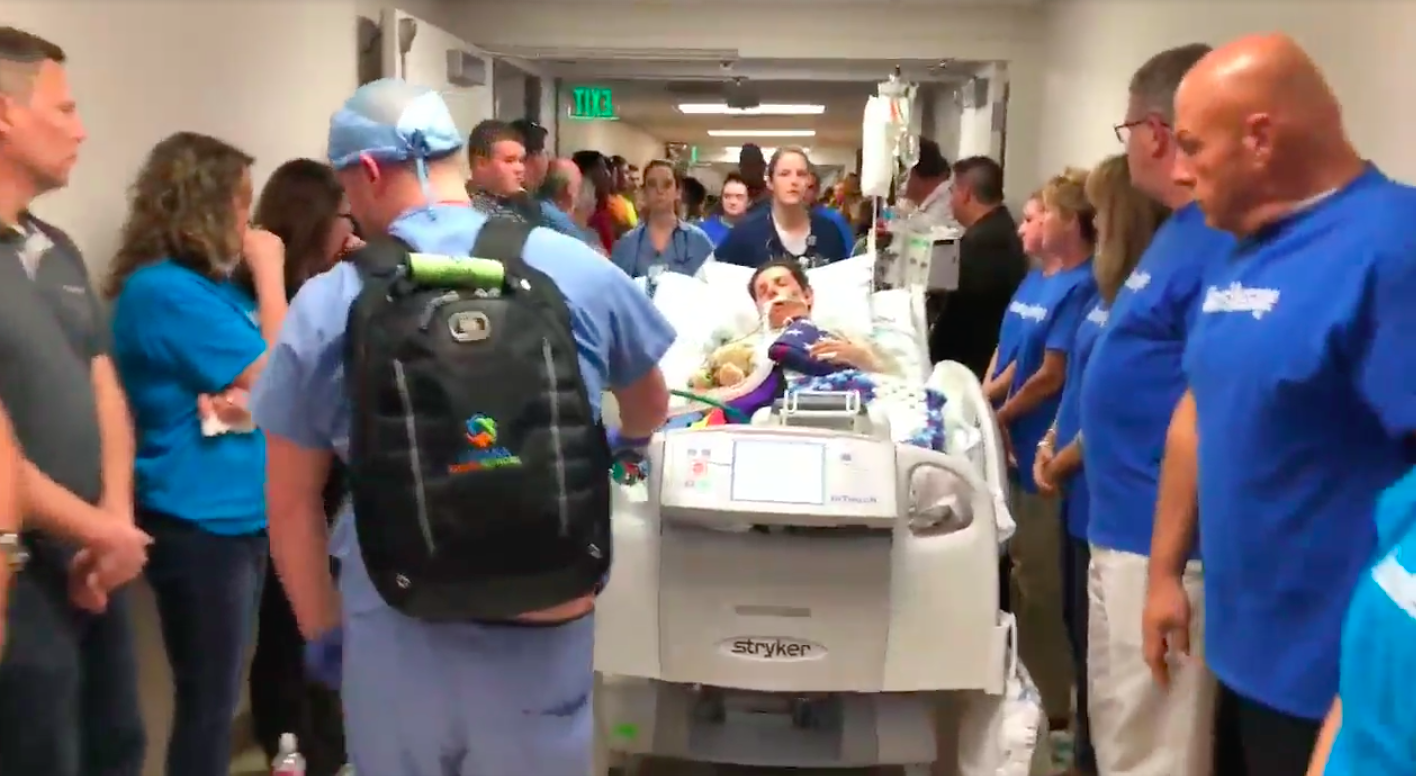
Viral video challenges have been making a lot of headlines in the last year — and usually not for good reasons. Most of them involve risky and sometimes life-threatening behavior, which have left countless kids and teens hospitalized, and in some cases have even claimed lives. Sadly, this was the case for Indiana teen Mason Bogard, who died May 4 of injuries sustained while doing the viral "choking challenge," according to Local 12.
As his devastated mother later shared on Facebook, Mason tried to choke himself "to the point of almost passing out," as the challenge dictates.
It was something he had seen on social media, and wanted to try himself. But tragically, it went too far, and shortly after the teen was discovered, he was rushed to the hospital.
According to his mom, Joann Jackson Bogard, doctors and medical staff at Deaconess Hospital in Evansville did everything they could to save Mason's life. But in the end, there was nothing that could save him.
Though grief-stricken by losing their son, the Bogards are doing their best to see the bit of good that has come from his passing.
“While we are devastated that we will never experience so many things with Mason again, we are able to find some comfort in the fact that Mason will save the lives of others,” the teen's mother wrote on Facebook.
After exploring organ donation, the family decided to move ahead with the procedure shortly before Mason was due to be taken off life support. Incredibly, he was able to save five lives with the organs harvested by medical staff.
A video of the teen's "honor walk" is now going viral, showing hospital staff silently honoring Mason's life, as well as those he was about to save.
"Our hero saved 5 lives!" reads the caption alongside the video, which was originally shared on Facebook by his mother, Joann.
It was filmed by an Indiana Donor Network representative on behalf of the Bogard family, according to Local 12. In it, Mason is seen being wheeled through a hospital corridor as medical staff bow their heads and respectfully stand in silence as he passes by. Right before heading into surgery, doctors paused for a moment of silence, and then — while surrounded by Mason's family — a short letter was read aloud describing the caring, "adventurous" young man so many knew him to be in life.
Deaconess Hospital also flew a “donor flag” outside the hospital for three days in Mason’s honor, his mother shared.
The rise in dangerous viral challenges has been concerning parents, health officials, and authorities for some time.
First came the headlines about teens eating Tide Pods in January 2018. Then in spring 2018, they were allegedly snorting condoms. There's also been the dangerous trend of car surfing, which led a 10-year-old to be hospitalized earlier this year when he was run over by his own parent. And the recent Snapchat craze known as the "shell on challenge," in which kids attempt to eat a food item in its packaging, even plastic.
Sadly, the "choking challenge" (sometimes called the "pass out challenge") isn't new — and neither are the deaths it has caused.
According to a TIME report last year, 82 people between the ages 6 and 19 died as a result of the game between 1995 and 2007 (the most recent data available from the Centers for Disease Control and Prevention). That means it's been making the rounds long before YouTube was even a thing.
"Choking someone else until they pass out, or choking yourself until you almost pass out, has been around for decades," wrote Mason's mother in a Facebook post earlier this month. "But the Internet provides youth with a new medium to actually watch others do it and then wake up and laugh about it … The problem isn't that they hear about a challenge or see a video … the problem is the AMOUNT that they are exposed to [it] … and the types of things that they see and hear online … their brains are not equipped to handle the emotions that go with that act, which can lead to all sorts of other emotional issues."
The danger of some of these teen challenges is real and, quite frankly, it is terrifying.
But families like the Bogards, who have lost a loved one as the result of them, hope that by sharing their stories, they can help prevent others from meeting the same fate.
On Facebook, Joann Bogard has become quite vocal about sharing what she's been calling #MasonsMessage. In a May 15 Facebook post, she shared a YouTube video by another mom highlighting her son's story and urging others to stop the choking challenge now*.*
"Please watch her video," Joann wrote. "This is the message that we are trying to share. Educate yourselves on the dangers, the signs, the possible consequences."
Hopefully, others are listening — especially teens — and the message Mason's family is so passionately sharing right now will not be in vain.




